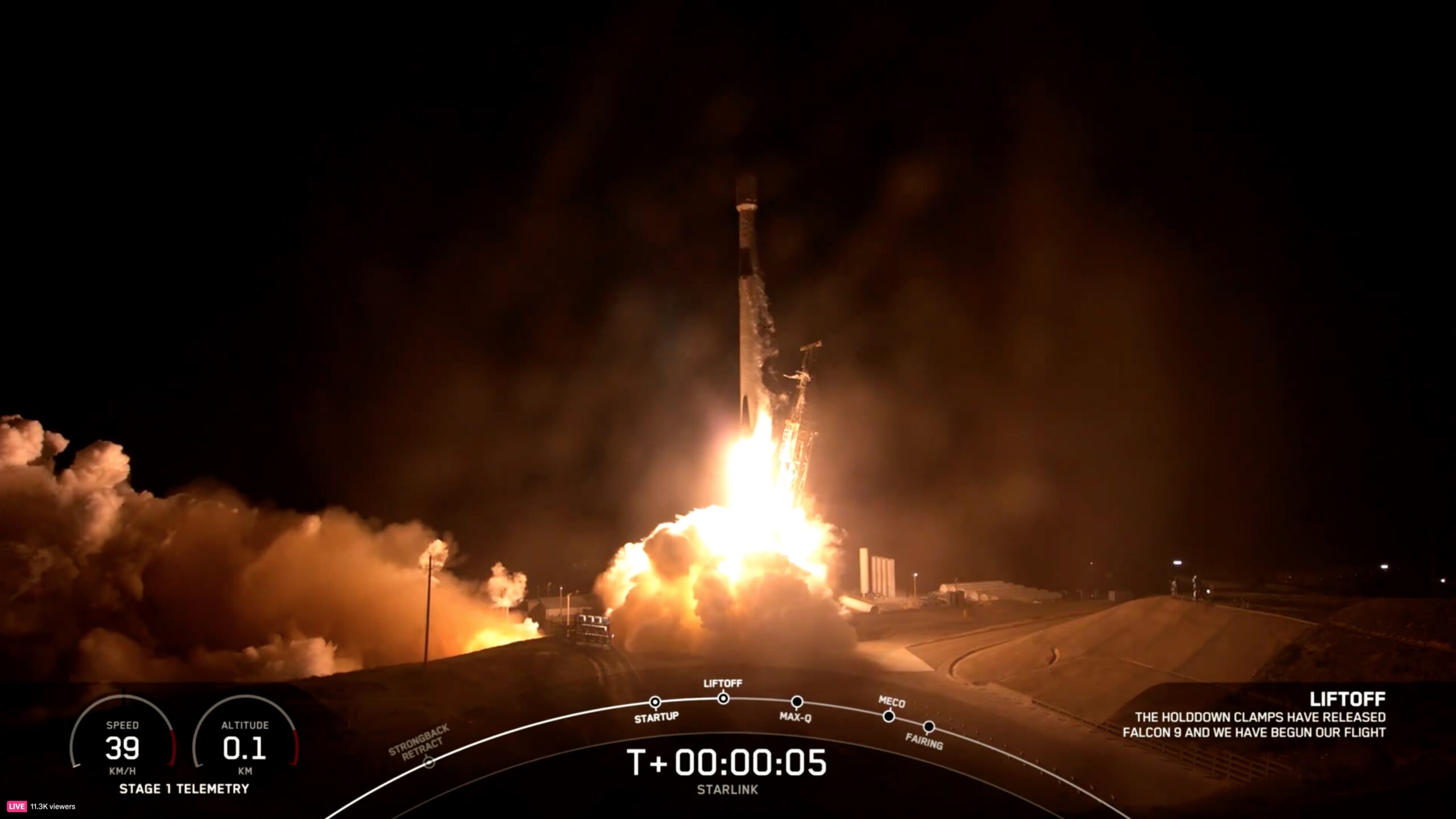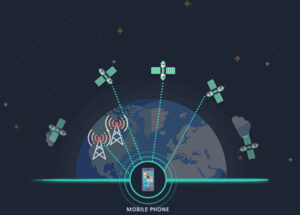
Early this year, using T-Mobile’s network, SpaceX successfully sent and received text messages using new Starlink direct-to-cell satellites that deliver broadband connectivity to smartphones anywhere in the world, bypassing traditional infrastructure.
While some will consider this an innocuous development, it’s a monumental moment for communication technology and geopolitics alike. In effect, it means the satellite phone, once the exclusive domain of government officials, diplomats, journalists and fictional secret agents, may soon be much more widely available, worldwide. The implications are considerable.
First, this raises fundamental questions about data sovereignty and legacy systems. The new satellite systems that may soon supplant today’s cell towers and fiber optic cables are likely to be controlled by large transnational corporate actors, such as SpaceX. This means the state’s role in building the infrastructure, controlling the content it conveys and governing the data flowing through it will be marginalized.
Second, this development will empower corporate actors to play an increasingly important role in domestic and international affairs. Suppose domestic law enforcement gets a warrant to wiretap the calls of a drug dealer in their country. In a feasible view of the future, that nation may need to coordinate with Starlink instead of tapping into terrestrial data, raising issues surrounding private companies’ role in policing and military efforts.
In foreign and defense policy, the consequences could be even more dire. In 2022, it is alleged that Elon Musk arranged for his Starlink satellite communications network to be shut off near the Crimean coast in an effort to undermine a Ukrainian drone attack on Russian warships, based on the premise that the Ukraine was “going too far.” But no one voted for Mr. Musk and therefore that really shouldn’t be his call to make. However, as commercial satellite broadband and cell service becomes more commonplace, business leaders may find themselves in these decision-making positions more than ever before.
Finally, this technology could help deliver on the initial promise of the internet — the true free flow of information. As we know, autocrats and despots tend to seek to control the flow of information that might undermine their grip on power. The most prominent example is China’s Great Firewall, a combination of technological and legal tools that fundamentally limits the scope of information available to Chinese citizens.
The strategic problem in freer flows of information, for autocrats and despots, is that they absolutely require a tight control over the information ecosystem. Once cracks start to show in their narrative, the whole power structure can be undermined. To control the people, one must control the information.
There is an old axiom: A lie can travel halfway around the world while the truth is putting on its shoes. This might be right. But here is a new one: Truth is like toothpaste, it makes you feel cleaner and once it’s out of the tube, you cannot put it back in.
For Iran, this concern was on full display during the third session of the United Nations Open Ended Working Group Meeting on Reducing Space Threats held at the U.N. office in Geneva, Switzerland. During the third meeting on Jan. 31, 2023, Iran protested the “illegal operation of the broadband satellite internet service known as Starlink” within its territory “with the U.S. government support,” and argued that this was being undertaken “in hope of providing a backup internet.”
Implicit in the complaint: Iran is worried about what happens when it cannot control the flow of information within its borders.
Certainly, democracies are awash in uncensored information and are dealing with their own problems of polarization, disinformation and the disintegration of shared conceptions of truth. But given the new tool of direct-to-cell satellites, people in any country on Earth can, in theory, connect with anyone, anywhere. This further democratizes freedoms and widens the flow of information and closes the gap between the connected and unconnected. It sidelines technological choke points laden with government censorship-enabled technology.
This development creates two new challenges. The first is that those who favor free flows of information must get the governance of these technologies right if they want to maximize the potential benefits and mitigate negative or unintended consequences. The second is that Earth’s orbit is now a deeply contested geopolitical space. The struggle for control of this high ground is unlikely to abate any time soon. Indeed, the inverse is true.
We can no longer write off space and the data flowing through it as the preserve of a few wonkish experts. Part of the dramatic expansion of technology in space has brought democracies a new tool and autocrats a new concern: direct-to-cell satellites. As a new front of geopolitics opens right above our heads, it is time we all started paying attention to these developments because while the implications might not be immediately clear, they are profound.
Aaron Shull is the managing director and general counsel at the Centre for International Governance Innovation.
- SEO Powered Content & PR Distribution. Get Amplified Today.
- PlatoData.Network Vertical Generative Ai. Empower Yourself. Access Here.
- PlatoAiStream. Web3 Intelligence. Knowledge Amplified. Access Here.
- PlatoESG. Carbon, CleanTech, Energy, Environment, Solar, Waste Management. Access Here.
- PlatoHealth. Biotech and Clinical Trials Intelligence. Access Here.
- Source: https://spacenews.com/satellite-phone-networks-democratize-global-communication/
- :has
- :is
- :not
- 2022
- 2023
- 31
- a
- About
- above
- absolutely
- actors
- Affairs
- agents
- alike
- All
- alleged
- an
- and
- any
- anyone
- anywhere
- ARE
- argued
- around
- AS
- At
- attack
- attention
- available
- back
- Backup
- based
- BE
- because
- becomes
- before
- being
- benefits
- between
- borders
- broadband
- brought
- Building
- business
- Business Leaders
- but
- by
- cables
- call
- Calls
- CAN
- cannot
- cell
- centre
- challenges
- chinese
- Citizens
- cleaner
- clear
- Closes
- Coast
- combination
- commercial
- Communication
- Communications
- complaint
- Concern
- Connect
- connected
- Connectivity
- Consequences
- Consider
- considerable
- content
- control
- controlled
- controlling
- coordinate
- Corporate
- could
- counsel
- country
- creates
- data
- dealer
- dealing
- Decision Making
- deeply
- Defense
- deliver
- democratize
- democratizes
- Development
- developments
- diplomats
- dire
- Director
- disinformation
- Display
- domain
- Domestic
- dramatic
- drone
- drug
- during
- earth
- ecosystem
- effect
- effort
- efforts
- empower
- ended
- enforcement
- Even
- EVER
- example
- Exclusive
- expansion
- experts
- far
- favor
- feasible
- feel
- few
- fictional
- Find
- First
- flow
- Flowing
- Flows
- For
- foreign
- Free
- freedoms
- front
- full
- fundamental
- fundamentally
- further
- future
- gap
- General
- Geneva
- geopolitical
- Geopolitics
- get
- gets
- given
- Global
- governance
- governing
- Government
- Government Officials
- government support
- great
- Ground
- Group
- halfway
- happens
- heads
- Held
- help
- here
- High
- his
- hope
- However
- HTTPS
- if
- immediately
- implications
- important
- in
- increasingly
- indeed
- information
- Infrastructure
- initial
- Innovation
- instead
- International
- Internet
- into
- Iran
- issues
- IT
- ITS
- Jan
- Journalists
- jpg
- Know
- known
- laden
- large
- Law
- law enforcement
- leaders
- Legacy
- Legal
- lie
- like
- likely
- limits
- longer
- make
- MAKES
- managing
- Managing Director
- Maximize
- May..
- means
- meeting
- might
- Military
- Mitigate
- moment
- monumental
- more
- most
- mr
- much
- Musk
- must
- NARRATIVE
- nation
- Nations
- Near
- Need
- negative
- network
- networks
- New
- no
- now
- of
- off
- Office
- officials
- Old
- on
- once
- ONE
- open
- opens
- operation
- or
- Orbit
- our
- out
- over
- own
- part
- paying
- People
- phone
- plato
- Plato Data Intelligence
- PlatoData
- Play
- points
- policing
- policy
- positions
- potential
- power
- private
- Problem
- problems
- profound
- prominent
- promise
- providing
- put
- Putting
- Questions
- raises
- raising
- really
- received
- reducing
- require
- Reuters
- right
- Role
- russian
- s
- satellite
- satellites
- scope
- Second
- Secret
- Seek
- sent
- service
- session
- shared
- show
- shut
- smartphones
- some
- Soon
- sovereignty
- Space
- SpaceX
- starlink
- start
- started
- Strategic
- structure
- Struggle
- Successfully
- such
- support
- suppose
- Surrounding
- switzerland
- Systems
- tapping
- technological
- Technologies
- Technology
- tend
- terrestrial
- territory
- text
- than
- that
- The
- The Future
- the information
- the world
- their
- themselves
- theory
- therefore
- These
- they
- Third
- this
- this year
- those
- threats
- Through
- time
- to
- today’s
- too
- tool
- tools
- toothpaste
- traditional
- transnational
- travel
- true
- truth
- two
- u.s.
- U.S. government
- Ukraine
- Ukrainian
- UN
- Undermine
- United
- united nations
- unlikely
- using
- View
- voted
- want
- Warrant
- was
- we
- What
- when
- while
- WHO
- whole
- widely
- will
- with
- within
- working
- Working Group
- world
- worldwide
- worried
- write
- year
- you
- zephyrnet









